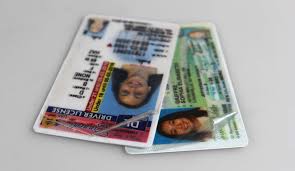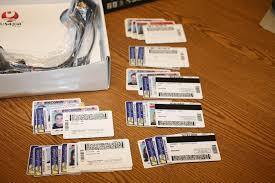fake ID safety
1. Introduction: Understanding Fake IDs and Their Risks
The rise of digital technology has led to an increase in fake IDs, which can have severe consequences. Fake IDs are used for various purposes, including age verification fraud, identity theft, and accessing restricted areas without authorization. These documents are often obtained through illicit means, and their misuse can result in financial loss, legal consequences, and reputational damage.
In this section, we will explore:
- What fake IDs are and how they are created.
- The common uses of fake IDs in society.
- The risks and consequences of using or falling victim to fake IDs.
Subtopics to cover:
- The legality of fake IDs in various jurisdictions.
- How fake IDs are obtained and used in fraudulent activities.
- The impact of fake IDs on individuals and businesses, including legal, financial, and security risks.
2. The Technology Behind Fake ID Safety: How Detection Works
As the prevalence of fake IDs rises, so does the technology designed to detect them. This section will explore the different types of identification fraud technologies and how they ensure the safety of consumers and businesses.
Key topics include:
- ID Verification Tools: Modern ID verification systems leverage cutting-edge technologies like AI, machine learning, and biometric data to identify fraudulent IDs quickly and accurately.
- UV & IR Scanning: Some ID cards feature invisible markings or prints that can only be detected under ultraviolet or infrared light, which can be crucial in spotting counterfeits.
- Digital Watermarks & Holograms: These are sophisticated security features that can be embedded in IDs to prevent tampering.
- Barcode and RFID Scanners: These technologies are used to read data encoded in physical IDs, and they can compare the data against centralized databases to verify authenticity.
Subtopics to cover:
- Detailed description of how AI-based systems detect inconsistencies in fake IDs.
- The role of advanced scanning technologies in protecting businesses from fraud.
- The use of blockchain in digital identity verification.
3. The Market for Fake ID Safety Products: Demand and Opportunities
The demand for fake ID safety products has surged, especially as online fraud and identity theft continue to grow. In this section, we will analyze the market for fake ID safety tools, including the key drivers of this demand, the target audience, and potential growth areas.
Key areas to analyze:
- Growth of Digital Identity Verification: The transition from physical to digital ID verification is creating opportunities for new products and services in this space.
- The Role of Government Regulations: Different countries have varying laws regarding identity verification, which drives the demand for compliance solutions.
- The Role of Social Media and Online Services: With the rise of online transactions, particularly in e-commerce and social media, the need for secure ID verification has never been more urgent.
Market Trends:
- Increase in Online Identity Theft: How digital fraud is affecting consumers and businesses.
- Growth of the Biometric Authentication Market: Insights into how biometric solutions, such as facial recognition and fingerprint scanning, are being integrated into identity verification systems.
- Consumer Awareness: A growing awareness of the risks associated with fake IDs and identity theft is driving the demand for safety products.
4. Target Audience: Who Needs Fake ID Safety Products?
While identity theft and fraud affect everyone, the target audience for fake ID safety products varies depending on the type of product. This section will break down the key groups that benefit from enhanced ID safety solutions.
Key Target Audiences:
- E-commerce Platforms & Online Retailers: They need to ensure that their customers are who they claim to be, preventing fraudulent transactions and chargebacks.
- Nightclubs and Bars: Venues that require age verification to comply with alcohol laws are prime candidates for fake ID detection tools.
- Government Agencies & Law Enforcement: Agencies responsible for issuing IDs need technology to ensure they aren’t accepting fake documents.
- College Campuses: With underage drinking and other illegal activities on the rise, colleges often use fake ID detectors to prevent fraud.
- Financial Institutions: Banks and credit agencies need to verify identities to prevent financial fraud and comply with anti-money laundering laws.
Subtopics to cover:
- How businesses in high-risk sectors like alcohol sales and banking are adopting fake ID safety measures.
- The importance of consumer trust and how verifying identity can lead to higher levels of customer satisfaction.
- How emerging markets are adopting fake ID safety technologies as digital fraud becomes a growing concern.
5. Product Features: What Makes a Good Fake ID Safety Solution?
In this section, we will delve into the key features that make an effective fake ID safety product. Whether it’s a mobile app, a scanning tool, or a full-service solution, the following attributes are essential to ensuring maximum protection:
Key Features to Look For:
- Accuracy: A top-tier fake ID detection system must be accurate in distinguishing between authentic and fraudulent IDs, with minimal false positives.
- Speed: The ability to quickly verify IDs, especially in high-traffic areas like bars or airports, is critical.
- User-Friendly Interface: For non-expert users, having an intuitive interface is key. The product should be easy to use for employees or individuals with little technical knowledge.
- Compliance with Industry Standards: ID verification products must adhere to regulations such as GDPR (for privacy) or PCI DSS (for payment security) in certain industries.
- Cross-Platform Compatibility: Many businesses now operate across mobile, desktop, and tablet environments. A solution that is compatible across platforms ensures wider adoption.
Additional Considerations:
- Customization: Some products allow for custom branding or tailored features to suit specific business needs.
- Data Security: As fake ID safety products process sensitive personal information, ensuring robust data encryption and secure storage is essential.
6. Case Studies: Success Stories of Fake ID Safety Solutions in Action
Real-world examples are crucial to demonstrating the effectiveness of fake ID safety products. In this section, we’ll share case studies and success stories from businesses that have successfully implemented fake ID detection systems.
Examples to include:
- A Major E-commerce Platform: How a leading e-commerce site implemented a fake ID detection solution to prevent fraud and improve customer verification.
- A Chain of Nightclubs: A nightclub chain that reduced underage drinking and illegal activities by using advanced ID verification tools.
- A Financial Institution: A bank that prevented fraudulent transactions by adopting biometric and document scanning technology for identity verification.
7. The Future of Fake ID Safety: Emerging Trends and Technologies
This section will discuss emerging trends in the fake ID detection space, including the potential for new technologies and innovations. As fraudsters evolve their methods, so too must the tools used to detect fake IDs.
Emerging Technologies to Watch:
- AI and Machine Learning: How AI is evolving to not only detect fake IDs but also predict fraudulent behavior before it occurs.
- Blockchain for Identity: The potential of blockchain to offer tamper-proof identity verification systems.
- Biometrics Integration: The integration of biometric data like facial recognition and iris scanning into ID verification systems for enhanced security.
Subtopics to cover:
- The growing importance of multi-factor authentication (MFA) in preventing identity fraud.
- The shift towards decentralized identity systems and how it could impact fake ID detection.
- How companies are combining multiple security technologies to offer end-to-end identity verification.
8. Conclusion: Safeguarding Your Identity in a Digital World
The final section will summarize the key points discussed and provide actionable advice for businesses and individuals looking to protect themselves from fake ID-related fraud. Whether you are a business owner or a consumer, investing in fake ID safety solutions can protect your privacy, prevent fraud, and maintain your reputation in an increasingly digital world.
Call to Action:
Encourage readers to explore available fake ID safety solutions and invest in their personal or business security today.
 Indiana Fake ID
Indiana Fake ID
 Kansas Fake ID
Kansas Fake ID
 Maryland Fake ID
Maryland Fake ID
 Massachusetts Fake ID
Massachusetts Fake ID
 Realistic Arizona Fake ID
Realistic Arizona Fake ID
 Fake ID safety
Fake ID safety
 Illinois fake ID
Illinois fake ID
 fake ID trends
fake ID trends
